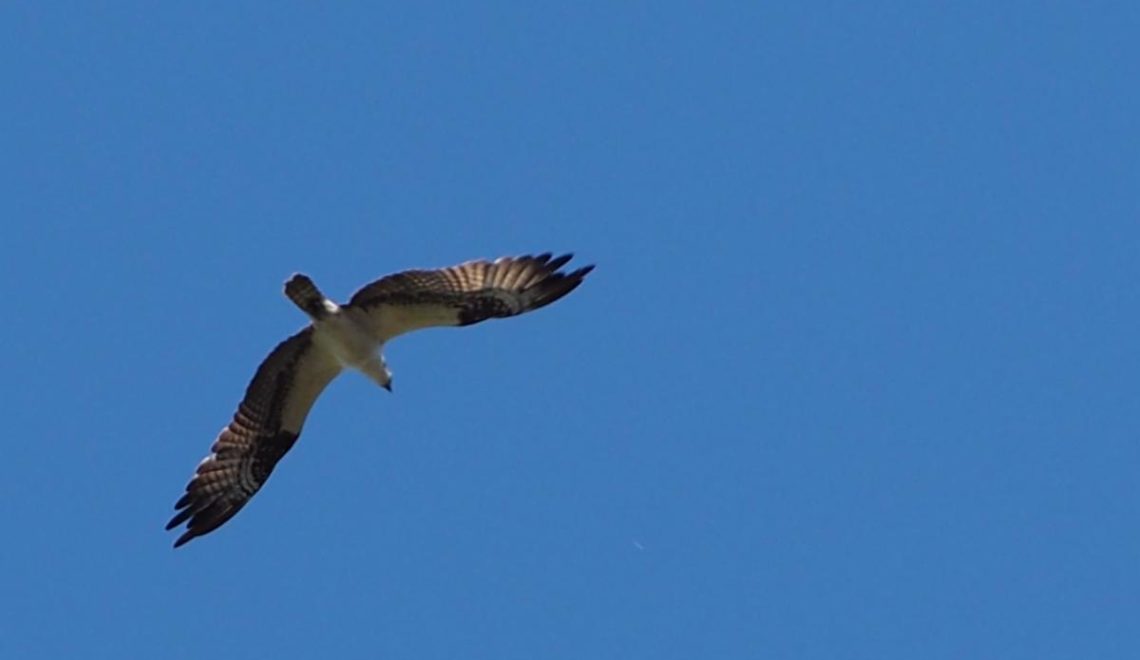
Observing Osprey
| Photo Credit: Gary Eduardo Perless (Education Coordinator Admiralty Audubon) 8/26/20 Railroad Bridge Park |
| Just a couple of hours before the raptor presentation last week, one of the more uncommon species covered in Ken Wiersema’s talk was spotted flying over the Dungeness River in Railroad Bridge Park: an osprey (Pandion haliaetus), also known as fish hawk.
Ospreys can be identified in flight by their long, slender, kinked wings that make an M-shape when seen from below. These birds can be seen near rivers, ponds, lakes, and coastal waterways, looking for their preferred food–fish. After a serious decline in numbers in the mid-20th century due to effects of pesticides that were banned in 1972, ospreys have since made a comeback in many parts of North America. Ospreys are one of only six land-birds with a cosmopolitan distribution, meaning that it is a single species that occurs nearly worldwide and can be seen on all continents except Antarctica. Despite their recent comeback, and global reach, ospreys are still uncommon on the Olympic Peninsula. Considering they require waterways that support fish populations, you might think this widely distributed bird would be commonly seen here, with numerous lakes, rivers and salt water habitat. Some challenges that osprey face in other parts of the world where their population is scarce is water contamination and loss of habitat. Here on the Olympic Peninsula, one of the biggest challenges they face is competition from another waterway dwelling, fish-eating bird of prey, the bald eagle. Eagles and osprey are known to battle for food, often resulting in the eagle forcing the osprey to drop fish that they caught and stealing it midair. While eagles have claimed their role as the dominant fish-eating raptor here, there is still a chance you might see the migratory osprey during the summer months. Late August into September is the prime time to catch an osprey stocking up on protein before heading south for the winter. Send us an email if you see one! If you want to learn more about our local birds, check out the book Birds of the Puget Sound Region: Coast to Cascades: Dennis Paulson (Author) Tom Aversa (Author). This River Center Gift-Shop bestseller is now available for purchase on our online bookstore! Click here! |


